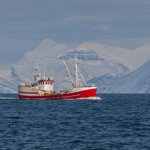Fish 2.0 evolves to fight industry fragmentation
The business competition Fish 2.0, now in its third installment, is evolving into a nexus of communication that is helping fight fragmentation in the seafood industry, according to its founding director Monica Jain.
Held every two years after an inaugural 2013 edition, Fish 2.0 is an open call for entrepreneurs and business owners in the seafood industry to propose their projects and get feedback from investors and industry professionals, as well as possible financial backing.
The four-phase competition pares the proposals it receives down to a group of finalists that present at Stanford University to a room full of investors, consultants and other businesses owners.
Jain said her original motivation behind creating the competition was to stimulate private investment in sustainable seafood, and the competition has certainly done that— companies that presented at the 2015 Stanford finals have raised more than USD 30 million (EUR 27.6 million), and include starts-ups including LoveTheWild and Acadia Harvest Inc.
But the competition has also created an unforeseen meeting point in a dispersed industry.
“The thing that we’re seeing is that more and more businesses are interested in our competition not just to meet investors, but to meet each other. There’s a lot of benefit for them meeting each other because the seafood industry is fragmented,” Jain said.
For the 2017 edition, Fish 2.0 held six workshops in different regions; Southeast Asia, Chile and Peru, the Pacific Islands, New England, the South Atlantic and Gulf of Mexico, and the U.S. West Coast.
At the U.S. West Coast workshop early this month in Seattle, entrepreneurs from California to Alaska discussed innovations and business ideas that ranged from submarine robots for patrolling aquaculture farms to salmon-based baby food to innovative fish handling techniques.
While entrepreneurs with diverse ideas are making useful connections at the workshops, Jain hopes the meetings will expand and eventually bring together people in different regions who are working on similar projects.
“I’ve met people all over the world that are working on the same things, but they don’t know each other. I know of companies in Vietnam and Malaysia and Europe and South America that are all working on new fish feeds from black soldier flies. They’re all working on developing the same technology. They’re all facing the same kinds of issues and they’re all experimenting with different ways to resolve those issues to be able to grow their businesses, but none of them know each other,” Jain said.
Jain might get her wish as the competition continues to grow. Around 80 largely U.S.-based applicants in 2013 turned into 170 applicants from 37 countries in 2015. Fish 2.0 has not released numbers for the 2017 edition, since they still accepting proposals – the deadline is Saturday 29 April – but they expect yet another uptick in numbers.
“In the evolution of Fish 2.0, I hope that we can exponentially grow the number of connections that we can help people make, not just within a region but globally,” Jain said.






Share